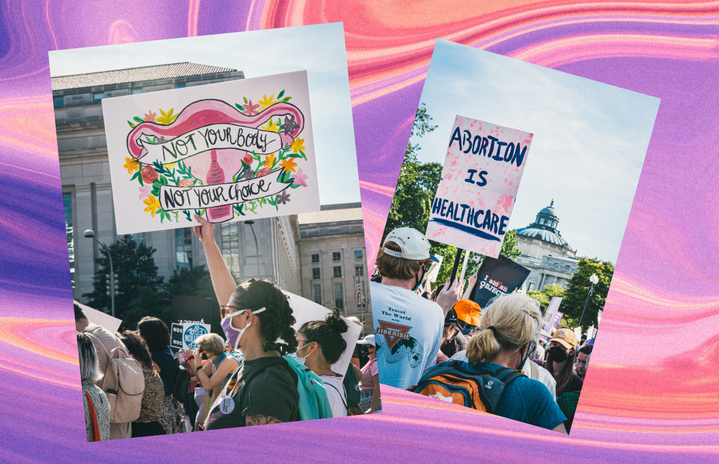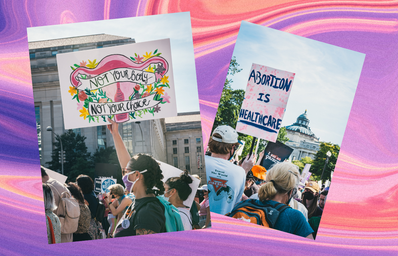In a landmark decision Dobbs v. Jackson Women’s Health Organization overturned two Supreme Court cases protecting women’s reproductive freedom and abortion access: Roe v. Wade and Planned Parenthood v. Casey. Abortion access is an issue that impacts everyone, and we should all understand the cascading events resulting from this decision. Now, in light of this harrowing ruling, what is the outcome?
Roe v. Wade (1973)
In 1973, pregnant 21-year-old Norma McCorvey, under the alias Jane Roe, challenged the constitutionality of the Texas criminal abortion laws. These laws stated that receiving an abortion, except on medical advice to save the mother’s life, is unconstitutional. Supreme Court Justice Harry Blackmun recognized the importance of privacy in abortions. He decided that with the precedence established in Griswold v. Connecticut, which ensured the right for married couples to use contraception freely without government interference, the court could strike down Texas’s abortion ban as unconstitutional.
Blackmun’s decision stated that a person has a constitutional right to have an abortion, protected under the 14th Amendment, the law that gives citizenship and equal protection. The core of this case stated that it is a women’s fundamental right to decide whether or not to terminate her pregnancy. In the original Roe v. Wade opinion, the court divided the pregnancy period into three trimesters. During the first trimester, the decision to terminate the pregnancy is solely at the woman’s discretion. During the second trimester, the state can regulate but not outlaw abortions in the interest of the mother’s health. After the second trimester, the fetus becomes viable, and the state can regulate or outlaw abortions in the interest of the potential life, except when necessary to preserve the life or health of the mother.
The Roe v. Wade 7-2 case stated that the Constitution protects a woman’s right to an abortion before the fetus’s viability.
Planned Parenthood v. Casey (1992)
Between 1988 and 1989, Pennsylvanian law amended its abortion control law to require informed consent, meaning a minor must have guardian permission or a married woman must notify her husband, and a 24-hour waiting period before the procedure. Abortion clinics challenged these provisions and proposed that state requirements for women violate their right to abortion as guaranteed by Roe v. Wade. This case set the precedent that state regulation can impose an undue burden: a substantial obstacle in the path of a woman seeking an abortion before the fetus attains viability. In the end, the court established three items: women have the right to abort pre-viability, or at about 24 weeks, without undue interference from the state, the state may restrict abortion post-viability and the state must have a legitimate interest in protecting the woman’s health and the life of the fetus.
Dobbs v. Jackson Women’s Health Organization (2022) overturns two legal landmarks
On June 24, the United States Supreme Court decided that the Constitution does not imply a right to abortion, overruling both Roe v. Wade and Planned Parenthood v. Casey through the Dobbs v. Jackson Women’s Health Organization case.
In 2018, Mississippi passed the “Gestational Age Act,” which prohibits all abortions after 15 weeks of gestational age. The gestational age of the unborn human is greater than 15 weeks. Challenged by the Jackson Women’s Health Organization, the question of whether Mississippi’s law banning abortions after 15 weeks is unconstitutional was eventually brought to the Supreme Court.
In May 2022, Politico released a circulating draft of a majority opinion by Justice Samuel Alito among the other Justices in February 2022, showing the favorability among judges to overturn Roe. This draft release was the first indication to the public that a case could overturn Roe later this year. The original draft is strikingly similar to the final issued majority opinion.
Look into this Annotated Version of the Opinion created by the New York Times.
What is the ruling?
In a 6-3 ruling, the Supreme Court majority opinion written by conservative Justice Alito immediately overturns Roe and Casey: “Roe was also egregiously wrong and on a collision course with the Constitution from the day it was decided. Casey perpetuated its errors, calling both sides of the national controversy to resolve their debate, but in doing so, Casey necessarily declared a winning side.” The decision is under state jurisdiction, “authority to regulate abortion is returned to the people and their elected representatives.” Abortion is no longer a constitutional right protected under the 14th Amendment.
The Dobbs case challenged the Gestational Age Act and won, overturning Roe and Planned Parenthood.
What does this mean now?
- Justice Thomas concurred in the 213-page opinion that the court should reconsider the following future cases: Griswold, Eisenstadt, Lawrence, and Obergefell. Thomas chose these cases because they address privacy rights under implied rights, which are political and civil freedoms not expressly stated directly in the Constitution and the 14th Amendment. If Griswold v. Connecticut and Eisenstadt v. Baird are overturned, states will determine access to contraception. If Lawrence v. Texas is overturned, the right to sexual privacy falls to the states and endangers all LGBTQIA+ relationships. National recognition of same-sex marriage will end if Obergfell v. Hodges is overturned.
- Trigger ban in many states will be executed. These laws are designed to be implemented after Roe was overturned. These states are Arkansas, Idaho, Kentucky, Louisiana, Mississippi, Missouri, North Dakota, Oklahoma, South Dakota, Tennessee, Texas, Utah and Wyoming.
- Right now birth control, IUDs and the morning-after pill (Plan B) are still legal as the decision does not apply to emergency contraception. But other states, such as Arizona, Arkansas, Georgia, Idaho, Illinois, Mississippi and South Dakota, have laws that explicitly allow for a pharmacy or pharmacist to refuse to dispense or sell emergency contraception.
- Conversations with a physician about abortion will remain private but due to the legality of abortions healthcare workers may have to call law enforcement about a patient if they suspect a crime has been committed. Furthermore, treatment for a miscarriage in a state where abortion is illegal will lead to at-home induced abortion suspicion.
What can you do?
Reach out to your representatives by phone or email about their stance on reproductive laws. Vote in the upcoming Midterm elections. Since abortion laws are now under state jurisdiction, the upcoming politicians will be the ones determine the future laws. There are also many abortion funds that you can donate to.
What is happening for Missouri Residents?
Attorney General Eric Schmitt has certified the House Bill 126, a trigger ban, into effect. This means that Missouri now bans most abortions, and it is now a class B felony that results in 5-15 years of prison. There is currently no exception for rape or incest, only medical emergencies. Right now, only abortion providers will face legal consequences. It is quite possible that more anti-abortion measures will be passed.
In a world where we are reverting to the restriction of women’s right to choose and reproductive freedom, we must think about how abortion is only the beginning of other socioeconomic issues that will call into question. Outlawing abortion will not stop them; it will only halt safe and medically monitored abortions. After all, abortion is healthcare. The right to choose should not be based on traumatic events. Ultimately, medical care based on worst-case scenarios will only further stigmatize the issue.


